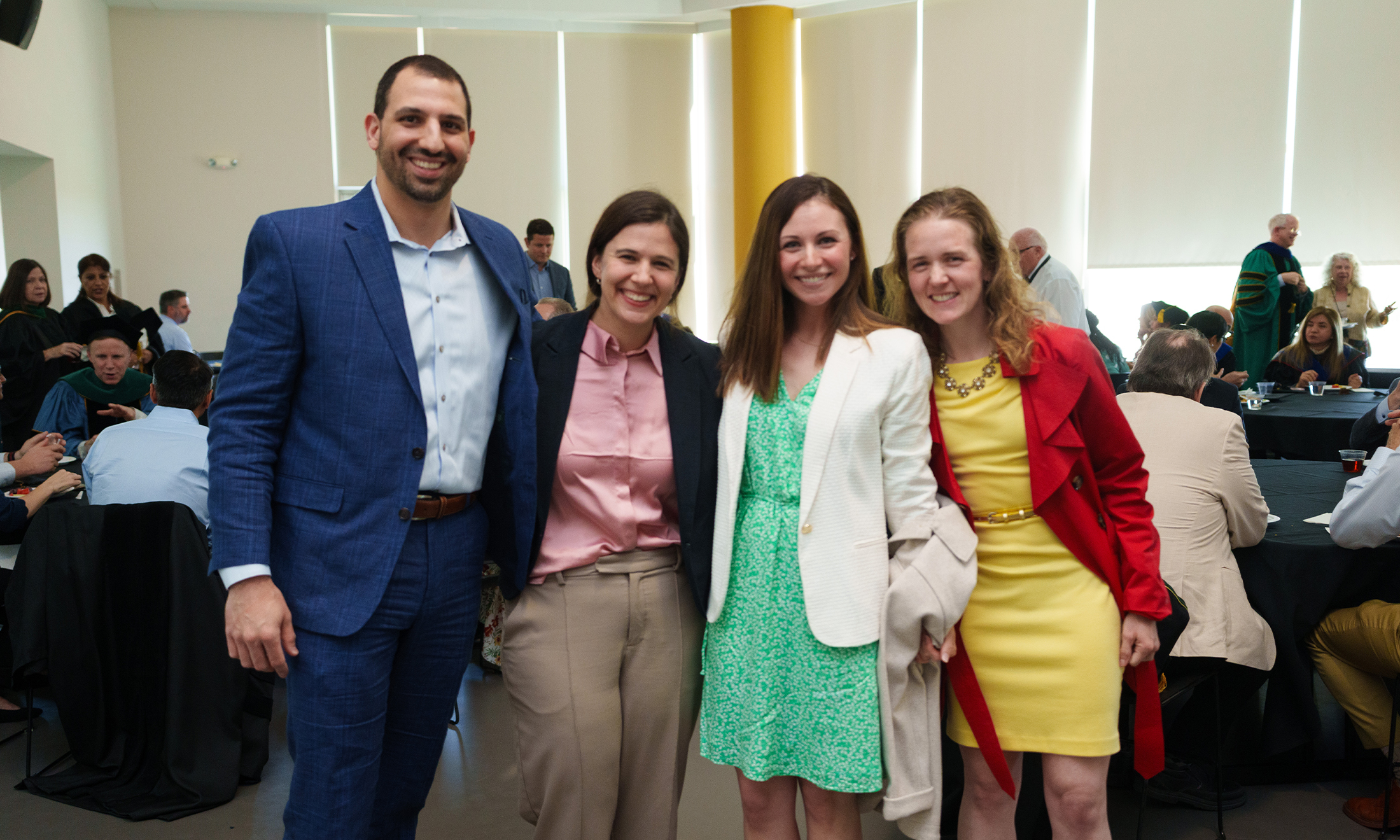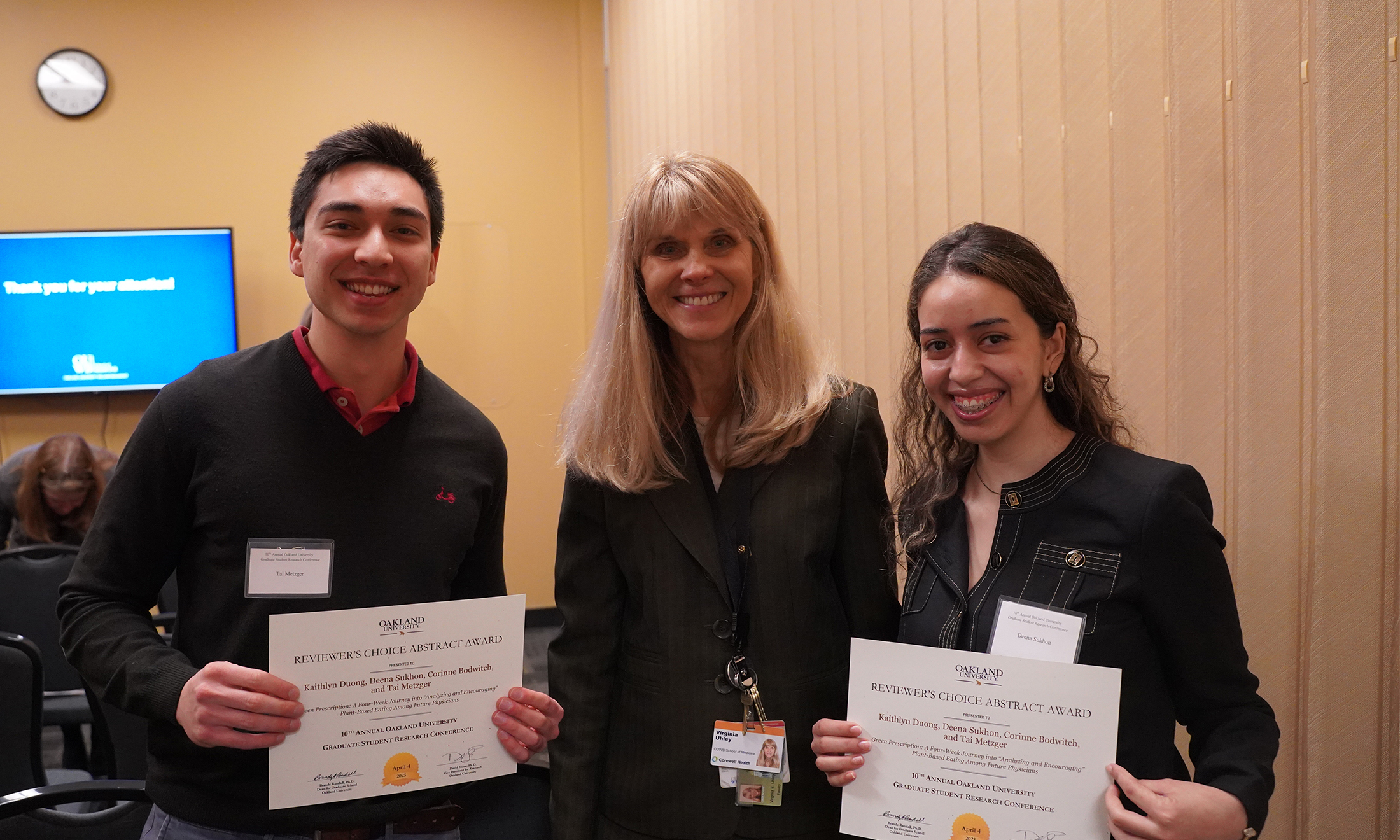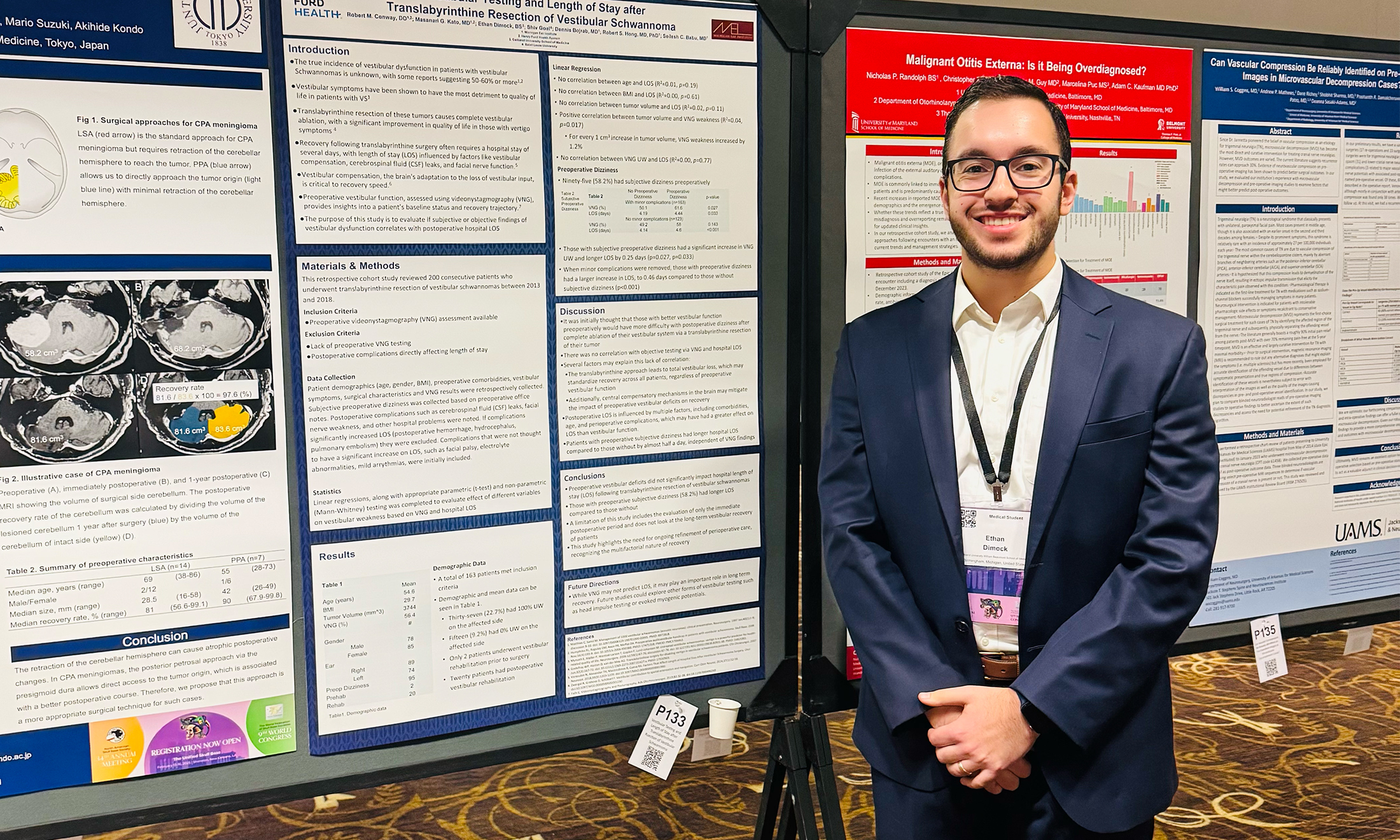A true honor
Anesthesiology fellowships provide unique learning opportunities for two OUWB students
Two OUWB students who completed fellowships with the Foundation for Anesthesia Education and Research recently presented posters at a national conference about research they did during the eight-week period.
Alexandra Jankulov and Salwan Al Hani are both second-year students at OUWB.
They participated in the fellowship program during the summer — Jankulov’s was through the University of Michigan, and Al Hani’s was via UCLA.
The fellowships consisted of clinical learning and research. Jankulov and Al Hani each gave poster presentations on the research they did during the American Society of Anesthesiology National Conference held in October in San Diego.
“Having had this opportunity …really just solidified my interest in continuing to pursue anesthesiology and becoming an academic anesthesiologist,” says Jankulov. “It’s really inspiring to see what the current leaders are doing in this field, and they emulate what I hope to be.”
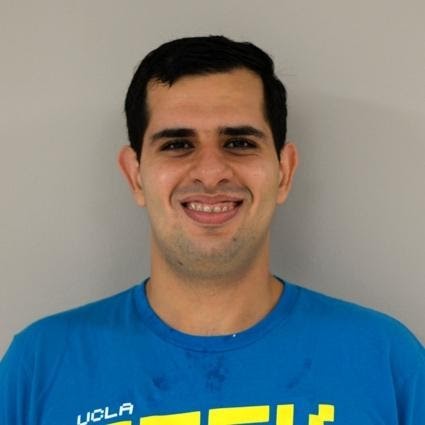 |
| Al Hani |
Al Hani says it helped him understand the field in a whole new way.
“Now, I’m much better equipped to understand anesthesiology,” he says. “I didn’t know about a lot of these things before the fellowship.”
The Foundation for Anesthesia Education and Research (FAER) is the nonprofit arm of the American Society of Anesthesiologists.
FAER’s Medical Student Anesthesia Research Fellowships (MSARF) program provides funding to support medical students who spend a summer focused on anesthesiology research, training in scientific methods and techniques, and learning how to incorporate research into a medical career.
Jankulov and Al Hani each describe their respective fellowship experiences as “amazing,” and say it has played a big role in their development as future physicians.
“I did three years of clinical research with the University of Michigan, specifically in the Department of Anesthesiology,” says Jankulov.
“Having the opportunity to go back and see some of my mentors and others I worked closely with prior to medical school was a fantastic experience.”
Jankulov says the fellowship allowed her to see research through a different lens — one that included initiation of a project, IRB submission, reflection and analysis, and presentation.
The project she led was called “Effect of Best Practice Alert (BPA) on Post-Discharge Opioid Prescribing After Hysterectomy.” The project studied post-discharge opioid prescribing for hysterectomies, which led to development of a novel BPA.
Al Hani’s project was “Modeling Cardiac Calcification by Differentiation of Cardiac Fibroblasts into an Osteoblast-like Cell.” The study primarily focused on simulating cardiac calcification in a cell culture to help develop future therapies.
As a future doctor, Al Hani says being able to conduct such research is critical.
“We are the next generation of physicians and, for as far as medicine has come, there are still a lot of unresolved problems and a long way to go,” he says.
The two OUWB students also say they enjoyed attending a national conference in person and not only getting to present their work, but network with others in the field.
| More from OUWB |
|
Study led by OUWB student identifies need for more women, minority anesthesiology residents OUWB student research finds med school interest groups need more diversity in leadership |
“Besides presenting, I was able to meet a lot of peers from other places,” says Al Hani. “I made a lot of new friends and contacts…talked a lot about OUWB and Beaumont and learned a lot about their institutions.”
Jankulov says the in-person aspect of the event helped her realize being selected for the fellowship was “a true honor.”
“I was driving past the conference center and was impressed by how many people were attending the conference,” says Jankulov. “It was a really rewarding feeling to know that I was one of the students in the U.S. selected to be part of the actual program.”
In addition to the research component, each says they also took a lot away from the clinical aspects of their fellowships.
“It’s one thing to learn in the classroom with a PowerPoint slide and then suddenly you find yourself in the OR…it really brings together the clinical concepts from lecture and real life,” says Al Hani. “That was really satisfying.”
Jankulov expressed similar sentiment.
“It’s actually kind of crazy just how much you can learn in eight weeks,” she says. “It was a really cool experience to be able to apply what we’ve learned in the classroom to an actual clinical setting.”
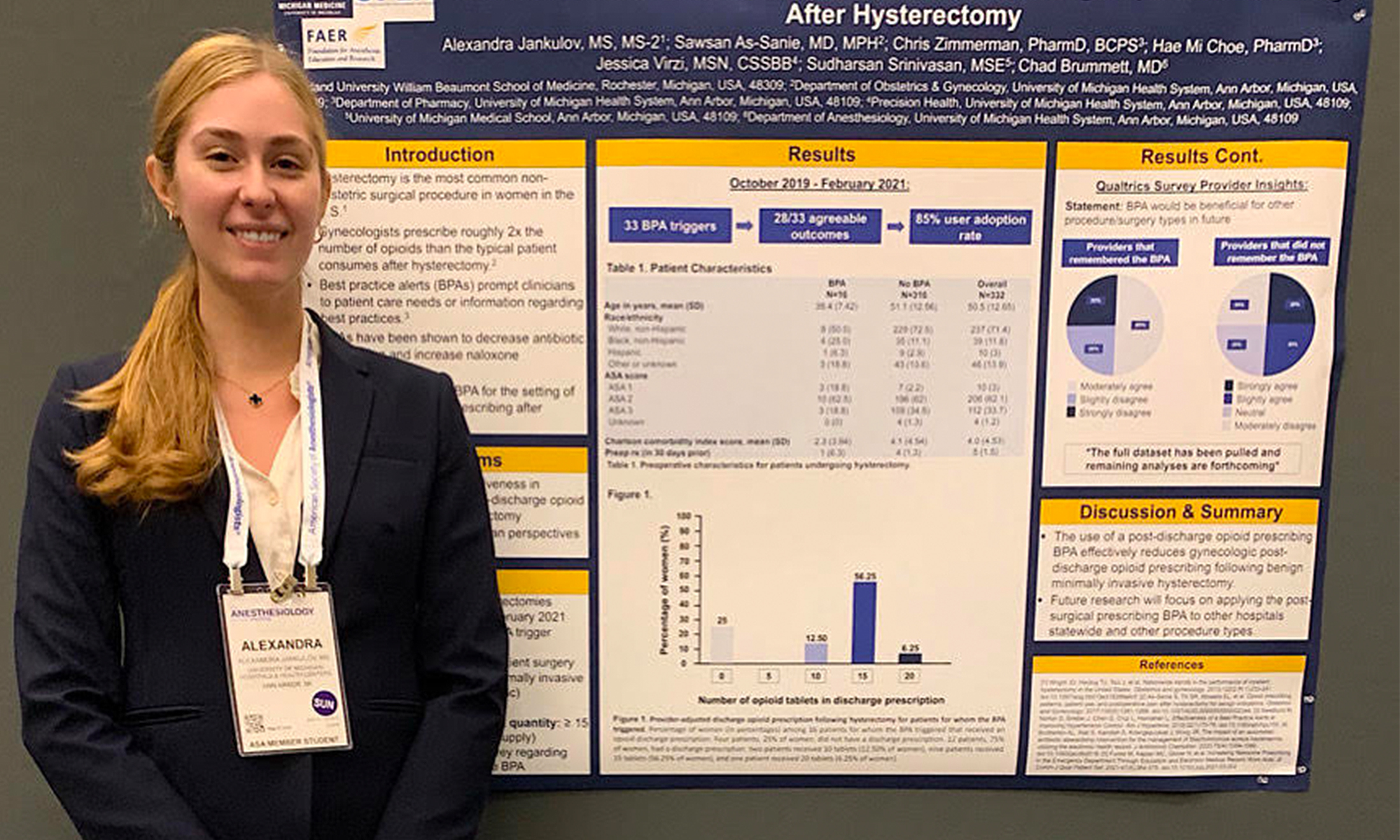
 December 21, 2021
December 21, 2021
 By Andrew Dietderich
By Andrew Dietderich